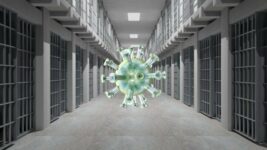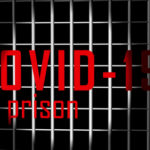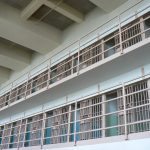NSW Prisons Lockdown as Avoidable COVID Crisis Unfolds

The warnings about the threat COVID-19 poses to prison settings have been sustained over the last 18 months. And despite the current Delta variant having a heightened ability to spread and harm, NSW authorities have all but ignored correctional facilities over the last two months of the outbreak.
But now it’s too late to prevent the virus from entering these closed environments, as Corrective Services NSW (CSNSW) confirmed on Sunday that there are currently twelve COVID-19 cases at the Parklea Correctional Centre in western Sydney.
Six cases have also been identified at Bathurst gaol, with two of those infected being correctional officers. And this follows four recently received inmates testing positive at Silverwater remand centre in mid-August.
After a number of facilities were locked down over the weekend, CSNSW announced on Monday that it’s locking down the entire state prison system. And it’s now focusing on inoculating inmates, as despite their being slated for priority vaccines, many of these were redistributed to HSC students.
Emergency release laws
In late March last year, NSW parliament passed emergency laws to assist in dealing with the COVID-19 pandemic, which included a provision that allows NSW Corrective Services commissioner Peter Severin to grant certain prisoners early parole in relation to the virus.
Section 276 of the Crimes (Administration of Sentences) Act 1999 (NSW) provides that certain inmates can be released if it’s “reasonably necessary because of the risk to public health or to the good order and security of correctional premises arising from the COVID-19 pandemic”.
While section 330 of the Crimes (Administration of Sentences) Regulation (NSW) stipulates that this early release provision relates to inmates who are at a greater risk to COVID-19 due to “an existing medical condition or vulnerability” and they must be eligible for parole within the next 12 months.
The Act stipulates that the early release provision does not extend to serious offenders, including those convicted of murder, a major sex crime or a terrorism offence. And it leaves it open for the commissioner to revoke an early release decision.
Australian Lawyers Alliance criminal justice spokesperson Greg Barns told The Australian on Sunday that his organisation is recommending that the commissioner activates the early release law and suggested that bail should not be refused to nonviolent offenders during the pandemic.
An enhanced threat
“The reality is that when it hits – and it will – it’s going to go through prisons like wildfire,” renowned prisoners’ rights advocate Debbie Kilroy warned Sydney Criminal Lawyers in April 2020.
“And I’m really concerned about this, especially considering the overrepresentation of Aboriginal and Torres Strait Islander people in prisons,” the Sisters Inside CEO added.
Currently, First Nations people make up 26 percent of the NSW prisoner population, despite only accounting for 3 percent of the entire state populace. And Indigenous peoples are recognised as being particularly vulnerable to COVID due to their poorer health outcomes.
On Sunday, NSW Greens MLC David Shoebridge said in a statement that “with such a large proportion of the prison population being First Nations people, passively waiting for COVID to spread will inevitably increase the racist impact of the criminal justice system”.
The Greens justice spokesperson also pointed to the need to apply the law that provides early release to nonviolent inmates, and he added that outbreaks in prisons also “present a very real danger to the broader public when uncontrollable outbreaks overwhelm the hospital system”.







